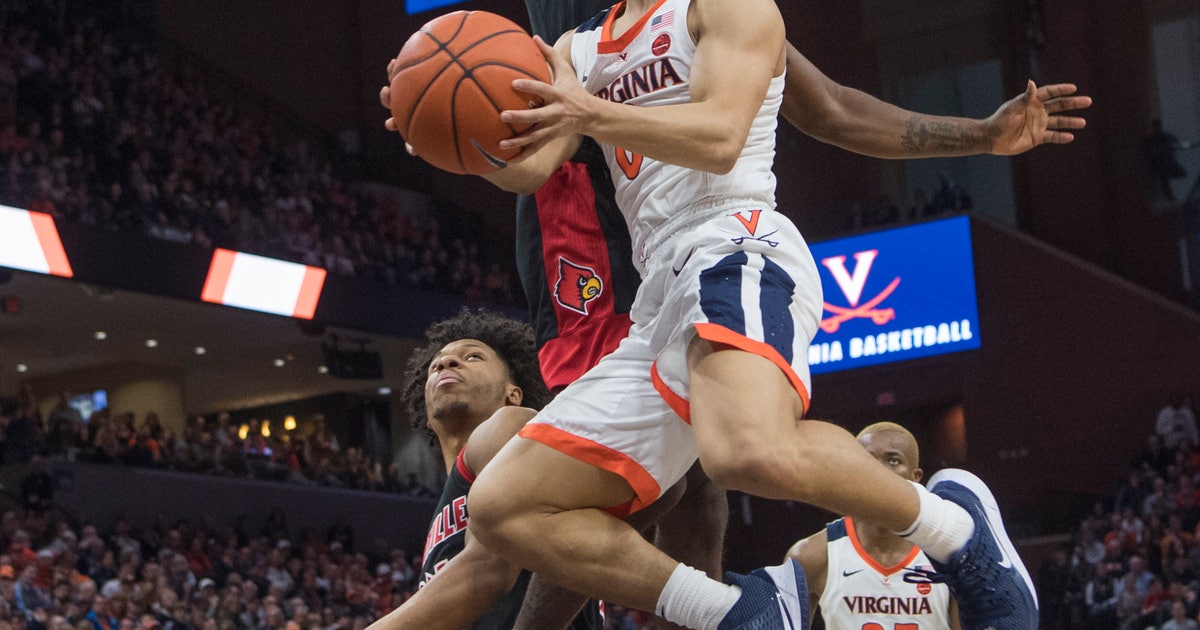Cavs’ catalyst: Kihei Clark has No. 17 Virginia on the rise


CHARLOTTESVILLE, Va (AP) — There have been times this season when Virginia coach Tony Bennett’s assessment of point guard Kihei Clark’s play has made it pretty clear that the No. 17 Cavaliers’ fortunes hinged on the 5-foot-9 sophomore improving his play.
During a 13-game stretch in the middle of the season — a streak during which the Cavaliers were 7-6 and seemed to be fading from contention for a chance to defend their NCAA Tournament championship — Clark averaged 4.2 turnovers.
In a 70-59 loss to South Carolina, he had seven.
In a 54-50 loss at No. 4 Florida State, he had nine.
And while Bennett acknowledges he is harder on point guards than any other player, in part because Bennett played the position, he has also recognized that Clark’s role changed dramatically this year after the departure of Ty Jerome. Last year’s starting point guard joined De’Andre Hunter and Kyle Guy in leaving early to play in the NBA.
“I think that I needed to be patient and live through some of those things,” Bennett said of Clark’s mistakes, “and no one’s harder on himself than Kihei, and he’s usually responded, and you’ve seen that.”
Part of Clark’s issue has been that Virginia is far more offensively challenged this season, and whether Clark was driving too far into the lane before looking for an outlet or just losing control trying to make a play, Bennett’s patience has paid off. The Cavaliers head into Thursday’s quarterfinals of the ACC Tournament in Greensboro, North Carolina, as the second seed and winners of 11 of their last 12.
Often, Clark has taken it upon himself to be the offensive solution, especially in the closing moments of close games.
His 3-pointer with under three seconds left at Virginia Tech gave the Cavaliers a 59-56 victory on Feb. 26. He made both ends of a one-and-one with eight seconds left in a 46-44 victory at Miami a week later. And in the regular season finale against No. 15 Louisville, his 3-pointer with 28 seconds left provided some insurance in a 57-54 victory that elevated the Cavaliers to the No. 2 seed.
During the last 12 games, he’s averaged 12.3 points, up from just over 10.
Clark, though, downplays the heroics.
“I just try to make a play at that moment,” he said. “Certain times, like the Virginia Tech game and the Louisville game, the ball was in my hands.”
It’s the kind of play Bennett — and Virginia fans — came to appreciate last season when Clark ran down a loose ball beyond midcourt in the waning seconds of regulation against Purdue in the Elite Eight and whipped a pass to Mamadi Diakite, whose short jumper sent the game into overtime.
“What’s been on his plate this year has been a lot, again from what we lost and him having to make plays and do a lot,” Bennett said. “He’s wired that way.”
Clark claims not to read online message boards, but Diakite scans them occasionally and was indignant when he saw fans calling out Clark’s errors.
“Kihei is the heart of the team, but people don’t realize that,” he said. “… Everyone can think what they want to think, but we know how valuable the kid is to us. He does some unbelievable things. He’s still young. He’s a second year, yet they want to hold him to a higher standard like a redshirt senior.”
Braxton Key, a 6-8 guard who sometimes substitutes for Clark at the point, has watched Clark evolve from his mistake-prone slump to a catalyst for Virginia’s success.
“We trust him. We just believe that he can make those plays,” Key said. “We’ve come down into the season where we’ve lost a lot of close games where we haven’t made those shots, we haven’t shot them with confidence.”
Bennett has cited Clark’s vastly changed role all season, even while being critical of his sloppiness, and can’t help but appreciate how Clark has managed to take the criticism without hanging his head and worked to improve.
“I think Kihei is wired right, and he’s tough-minded. You have to be at his size and with what he’s done,” Bennett said Monday. “But we’re all susceptible to getting discouraged or being hard on ourselves. But hey, next play and next game, and look what you’re doing. So it’s a balance.”
One Clark appears to have mastered quite well.








